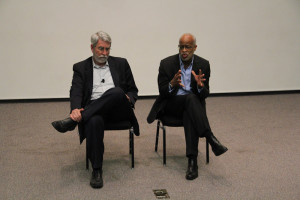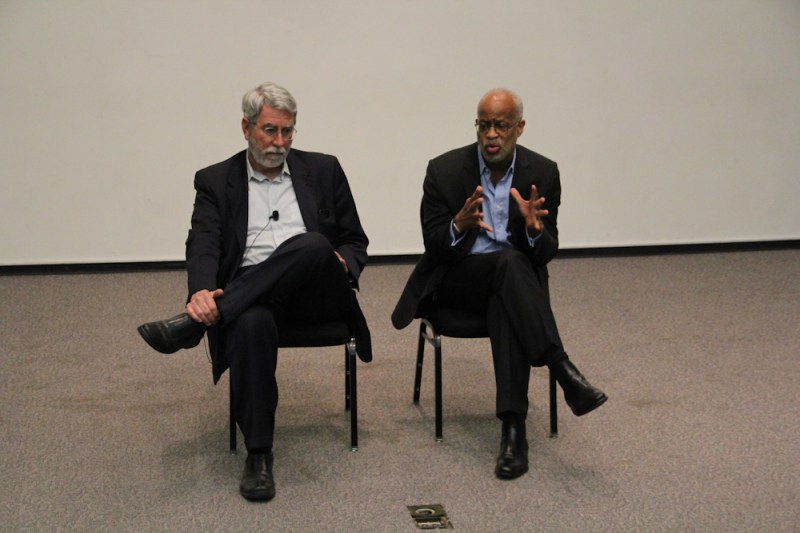As the Faculty Senate approaches a vote next month on a controversial class scheduling proposal, University Registrar Tom Black and Vice Provost for Undergraduate Education Harry Elam fielded questions and concerns from about 10 students during a town hall-style meeting Wednesday evening.
Though the meeting, arranged by the ASSU Executive at the request of Black and Elam, was intended to be a forum for students to have their concerns heard directly, the duo also revealed a major update to the proposed changes, which — if approved by the Faculty Senate — would now go into effect in the 2014-15 academic year.
Instead of banning the practice of double-booking classes outright, the proposed chan

ges would now require a petitioning process to double-book classes, according to Elam and Black. Though the details of that petitioning process were still unclear, both administrators made it clear that certain types of conflicts, such as those in which one class is filmed, would be allowed.
“I got letters from students wanting to take two classes at the same time,” Elam explained, adding that student feedback influenced his opinion in this respect.
Discussion at the meeting focused on a small number of issues. These included the effects on athletes’ practice schedules of holding large, required lecture classes at 8:30 a.m., the need — or lack thereof — of a petitioning process to double-book classes and a better ways for students to voice their opinions to University and departmental administrators.
Ben Holston ’15, a swimmer, expressed his concern that mandatory lectures — such as core physics, chemistry or human biology classes — might move to an 8:30 a.m. start time, forcing sports teams that practice during the mornings to start even earlier. Currently, these lectures begin at 9 a.m. at the earliest.
“We don’t want to wake up before 5 to get to weights at 5:30,” Holston said, adding that getting enough sleep was already a challenge for athletes.
“My response is that I don’t control that,” Black said. He explained that individual departments, to which he and Elam could only make recommendations, control the scheduling of particular classes.
Ilya Mouzykantskii ’16, who began a popular petition opposing the proposed changes last month, questioned the need for a petitioning process in order to double-book classes. He argued that there was “no pressing need to flip the balance of power to the faculty to decide when a student can or can’t take the classes,” arguing that students are capable of deciding for themselves.
Although the details of the potential petitioning process have not been agreed upon — the question of whether they will be handled by individual faculty members or by Undergraduate Advising and Research is open, for example. Elam stressed the importance of advising before making potentially crucial academic decisions like double-booking classes.
Of the students he sees having serious academic difficulties, “so many of them were because of double-booking,” Elam said.
Another student asked whether students had any avenues to express their concerns.
“There isn’t a system to do that right now,” Elam said.
Black echoed the sentiment, saying that the idea was a “good recommendation.”
Closing the meeting, Elam encouraged student input during the Faculty Senate discussion of the changes, which will take place on May 2. Though students who wish to attend must obtain an invitation, Elam said their voices would be a significant part of the debate.
“There’s space for student voices to speak,” he said.
